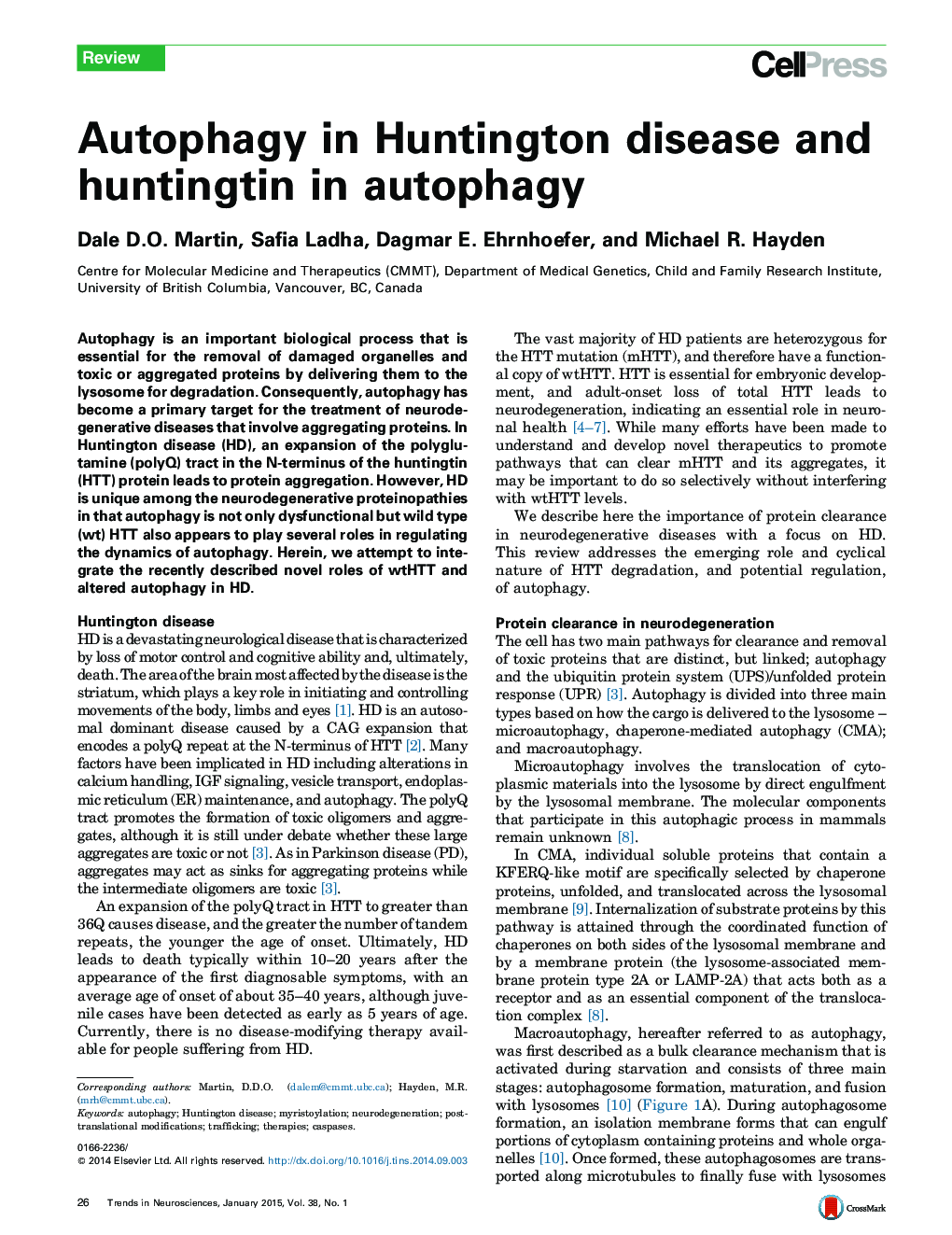| Article ID | Journal | Published Year | Pages | File Type |
|---|---|---|---|---|
| 4354184 | Trends in Neurosciences | 2015 | 10 Pages |
•HTT is an important regulator of autophagy that is, in turn, degraded by autophagy.•Genes regulating protein clearance show altered expression in HD brains.•Defining HD-specific alterations in autophagy is crucial for the development of therapeutics.•Post-translational modifications influence the role of HTT as a regulator of autophagy.
Autophagy is an important biological process that is essential for the removal of damaged organelles and toxic or aggregated proteins by delivering them to the lysosome for degradation. Consequently, autophagy has become a primary target for the treatment of neurodegenerative diseases that involve aggregating proteins. In Huntington disease (HD), an expansion of the polyglutamine (polyQ) tract in the N-terminus of the huntingtin (HTT) protein leads to protein aggregation. However, HD is unique among the neurodegenerative proteinopathies in that autophagy is not only dysfunctional but wild type (wt) HTT also appears to play several roles in regulating the dynamics of autophagy. Herein, we attempt to integrate the recently described novel roles of wtHTT and altered autophagy in HD.
